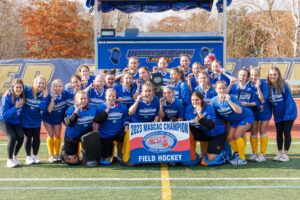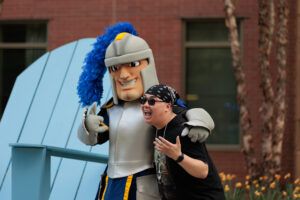President’s Note
For 150 years now, Worcester State University has served as a provider of a well-educated regional workforce. From our earliest incarnation as the Worcester Normal School, we’ve provided experiential learning opportunities. The first Normal School principal, Elias Harlow Russell, helped pioneer an innovative teacher training model that put students into the city’s classrooms as part of their education. This model remains a cornerstone of our education programs, and hands-on learning experiences permeate our 80+ undergraduate academic programs. Practicum and clinical hours are essential components of our graduate programs, as well, in health professions, among others.
The Normal School also established an ethos of service that remains central to who we are, as our 19th– and early 20th-century graduates filled the need for teachers to lead the many new public school classrooms. Those teachers, and the young people they taught, transformed society in the wake of Horace Mann’s educational revolution. Today, service learning and volunteerism are hallmarks of a Worcester State education; community engagement is something we were recently recognized for by the American Council on Education and the Carnegie Foundation for the Advancement of Teaching.
As the only public university in Worcester offering bachelor’s degrees, we are known by many businesses and nonprofits as a pipeline for well-qualified employees—those who can do as well as think—and these practices ensure our students are prepared for their careers from day one. We graduate about 1,000 bachelor’s-educated students every year. Many of them have benefited from internships with regional employers that then translate into full-time jobs upon graduation.
Our students also learn how to work with others because their classrooms are filled with those from varying socio-economic classes; ages; and ethnic, racial, and religious backgrounds. I’ll note that nearly 40 percent of our students identify as African, Latine, Asian, Native American and/or Black, Indigenous, or People of Color. A wide variety of life experiences and perspectives are represented here, as they are in most workplaces.
Our required liberal arts and sciences curriculum means every student learns how to think critically and communicate effectively. Over the past few years, we’ve instituted a MajorPlus requirement, having adapted our curriculum to ensure that undergraduates are able to complete two majors or a major and minor within four years, doubling their value to employers and their career and/or graduate school opportunities.
A 2022 survey of recent graduates showed that 98 percent of them were employed, pursuing further education, or both within three months of graduation. The economic impact of our collective alumni—around 90 percent of whom stay in the region for some period of time after graduation—is robust, not only in terms of providing the workforce but also by remaining in the state as taxpaying, well-informed citizens.
Experiential learning, critical thinking, ability to navigate diverse settings—these are just some of the qualities regional employers look for in their new hires, and our graduates are prepared to meet that demand.



